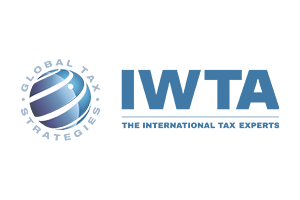International Tax in 2022:
The Year of Disclosure and Investment
For taxing authorities around the world, monitoring taxpayer disclosures and transparency will be a top line item in 2022, meaning taxpayers — especially high-net-worth individuals and corporate entities — should expect more scrutiny into their affairs. Governments are in a unique position as they navigate multiple demands and pressures. On one hand, the revenue demands of the COVID-19 economic recovery require creative strategizing, and lawmakers around the world are eyeing tax as a main driver. Increased public scrutiny on high-net-worth individuals due to data leaks like the Panama Papers and Pandora Papers is also placing more pressure on lawmakers to hold tax evaders to account. Throw in long simmering concerns about tax fraud, international money laundering and corruption, and it is apparent that taxing authorities will be focusing on how they can obtain more taxpayer information. At the same time, countries are also competing for foreign investment as part of their pandemic recovery strategy, and tax incentives for foreign investors will be a key area to watch in 2022.
New Rules: The U.S. Corporate Transparency Act
In the United States, Democratic and Republican lawmakers alike are concerned that the country’s millions of anonymous shell companies are enabling corruption, tax fraud, and money laundering. Those concerns drove Congress in January 2021 to enact a wide-sweeping beneficial ownership reporting law, the Corporate Transparency Act, which is one of the largest transparency-related laws in recent memory. The CTA was included in the National Defense Authorization Act for Fiscal Year 2021. In 2022, Treasury’s Financial Crimes Enforcement Network (FinCEN) will release three sets of implementing rules for the CTA that will impact millions of U.S. corporations, limited liability companies, and similar entities. Over the next few months, taxpayers will need to keep abreast of the rules as they are released by FinCEN and potentially participate in FinCEN’s regulatory notice and comment process as the office attempts to address several open issues within the law.
The CTA requires domestic and foreign “reporting companies” to send to FinCEN the names, addresses, dates of birth, and driver’s licenses or other identification numbers of their beneficial owners who have substantial control. But what is a reporting company? Or a beneficial owner? What does substantial control mean for purposes of the CTA? The first tranche of proposed FinCEN rules, which were published December 8, 2021, to provide some guidance.
The CTA applies to corporations, LLCs, and “other similar entities” and although the law doesn’t define “other similar entities” the December 8 proposed rules offer some insight.
A foreign reporting company is any entity formed under foreign law that is registered to do business within the United States. A domestic reporting company is any entity created by the filing of a document with a secretary of state or filed with a similar office within a U.S. jurisdiction, like a state.
In the proposed regulations, FinCEN wrote that the proposed definition of domestic reporting company “would likely include limited liability partnerships, limited liability companies, business trusts (aka statutory trusts or Massachusetts trusts) and most limited partnerships, in addition to corporations and limited liability companies,” because they typically are created by a filing with a secretary of state or similar office.
That definition will capture a lot of entities – there are about 30 million in the U.S. according to FinCEN’s estimation. Another 3 million are created annually. FinCEN said it does not plan to include any other legal forms other than corporations and LLCs within the definition, noting that U.S. state and tribal laws differ on whether other types of trusts and business forms like general partnerships are created by a filing.
There also are several exemptions, as the CTA exempts 23 different kinds of entities under 31 U.S.C. 5336(a)(11)(B)(i)-(xxiii). For example, FinCEN’s proposed regulations clarify that under the large company exemption, any domestic company or foreign entity that is registered to do business in the U.S. is exempt from the CTA’s reporting requirements if it meets the following hallmarks: (1) Over 20 full-time U.S.-based employees; (2) more than $5 million in gross receipts or sales from sources inside the U.S., as reflected on a U.S. federal income tax or information return; and (3) operates a physical office in the U.S.
The next question is, who is a beneficial owner with substantial control? The CTA defines a beneficial owner as “any individual who meets at least one of two criteria: (1) exercising substantial control over the reporting company; or (2) owning or controlling at least 25 percent of the ownership interest of the reporting company.” Under the CTA, substantial control is defined as: (1) service as a senior officer of a reporting company; (2) authority over the appointment or removal of any senior officer or dominant majority of the board of directors (or similar body) of a reporting company; and (3) direction, determination, or decision of, or substantial influence over, important matters of a reporting company.
Beyond that, the proposed regulations say that determining an ownership interest is a facts and circumstances inquiry that evaluates criteria such as: (1) equity in the reporting company and other types of interests, like capital or profit interests (including partnership interests), or convertible instruments; (2) warrants or rights; or (3) other options or privileges to acquire equity, capital, or other interests in a reporting company.
The stakes – and potential penalties – are high. Taxpayers that willfully fail to share beneficial ownership information with FinCEN face civil penalties of up to $500 per day. Criminal penalties can hit $10,000 per violation. Based on this, and the broad sweeping nature of the CTA, taxpayers who meet the criteria for domestic or foreign reporting companies or want to know if they are exempt, will want to explore their options with an experienced international tax professional.
High Net Worth Individuals: Wealth Tax VS Enforcement
Globally, wealth taxation has commanded quite a bit of attention as governments strategize ways to raise revenue in light of the COVID-19 pandemic. Some countries have been more active than others. For example, Singaporean lawmakers are considering a graduated net wealth tax between 0.5 and 2 percent imposed on individual net worth exceeding SGD 10 million (about $7.4 million). Norway’s Parliament at the end of 2021 passed a bill to increase the country’s wealth tax base rate from 0.85 percent to 0.95 percent. Taxpayers whose assets exceed NOK 20 million will be assessed at a 1.1 percent rate.
Meanwhile, in the U.S. and much of Europe, wealth taxes have failed to gain much traction. What has proven popular is an increased focus on tax enforcement. President Joe Biden placed tax enforcement as a cornerstone of his Build Back Better economic strategy, and he wants to increase the IRS’ funding by $80 billion. For over a decade significant budget cuts have eroded IRS enforcement capabilities and cost the government billions of dollars in uncollected taxes. The IRS funding plan, which is part of Biden’s now- stalled Build Back Better social spending bill, would give the IRS $80 billion over 10 years to ramp up its enforcement and investigative work, particularly on audits of corporations and wealthy taxpayers. See our recent article on Build Back Better.
In the United Kingdom, HM Revenue & Customs has increased its investigations into criminal and tax offenders, and that work has recovered over £1 billion over the past five years. HMRC plans to continue that work in 2022, and specifically plans to rely more heavily on its powers to freeze and recover unexplained assets. Judging by the department’s prior activity, that could be quite a bit of activity: between 2020 and 2021, HMRC issued 151 account freezing orders, covering over £26 million in assets.
In 2021, Spain decided to investigate high net worth individuals who move their tax domicile abroad to determine whether or not they are doing so fraudulently, and that activity will continue in 2022. The same is true in China. In late 2021, China’s State Tax Administration announced that it would launch investigations into high net worth individuals suspected of engaging in tax evasion. Developments like these suggest that high net worth individuals should prepare for increased scrutiny into their tax affairs and engage the help of a professional to prepare for potential inquiries.
For how this ties-in to the new treatment of GILTI tax rules, see our related articles, The Biden Administration is Homing in on GILTI.
Global Tax Incentives for Investors
On the other hand, governments are keen to attract foreign investors with various tax credits and incentives, and individuals taking stock of these opportunities have a wide menu to peruse.
For example, Canada recently enacted an investment tax credit for capital invested in carbon capture, utilization, and storage projects, which can be claimed starting in 2022. Malaysia’s National Economic Recovery Plan contains a host of tax incentives for foreign businesses, including reduced corporate tax rates for companies that want to create a principal hub in Malaysia. China decided to offer an important tax exemption to foreign investors investing in China’s mainland bond market. Effective November 7, 2021 through December 31, 2025, foreign institutional investors are exempted from paying corporate income tax and value-added tax on bond interest gains generated by investments in the Chinese mainland bond market, according to the country’s Ministry of Finance and State Administration of Taxation. Poland’s Ministry of Finance is also assessing the country’s suite of tax incentives and whether they need an overhaul, in order to attract more investors to Poland. Accordingly, the Ministry has commissioned a study and results should be released in the next few months.
Prepare Now
In summary, foreign and domestic business entities, high net worth individuals and cross-border taxpayers will have to navigate an increasingly sophisticated terrain in the coming year and should be prepared to defend their current tax activity or take advantage of new taxing incentives as they appear. Legislative uncertainty only adds to the urgency. Given the breadth and depth of these new and anticipated changes, taxpayers are strongly advised to enlist the help of an experienced international tax practitioner to develop a game plan, mitigate loss, and stay ahead of global tax changes.























